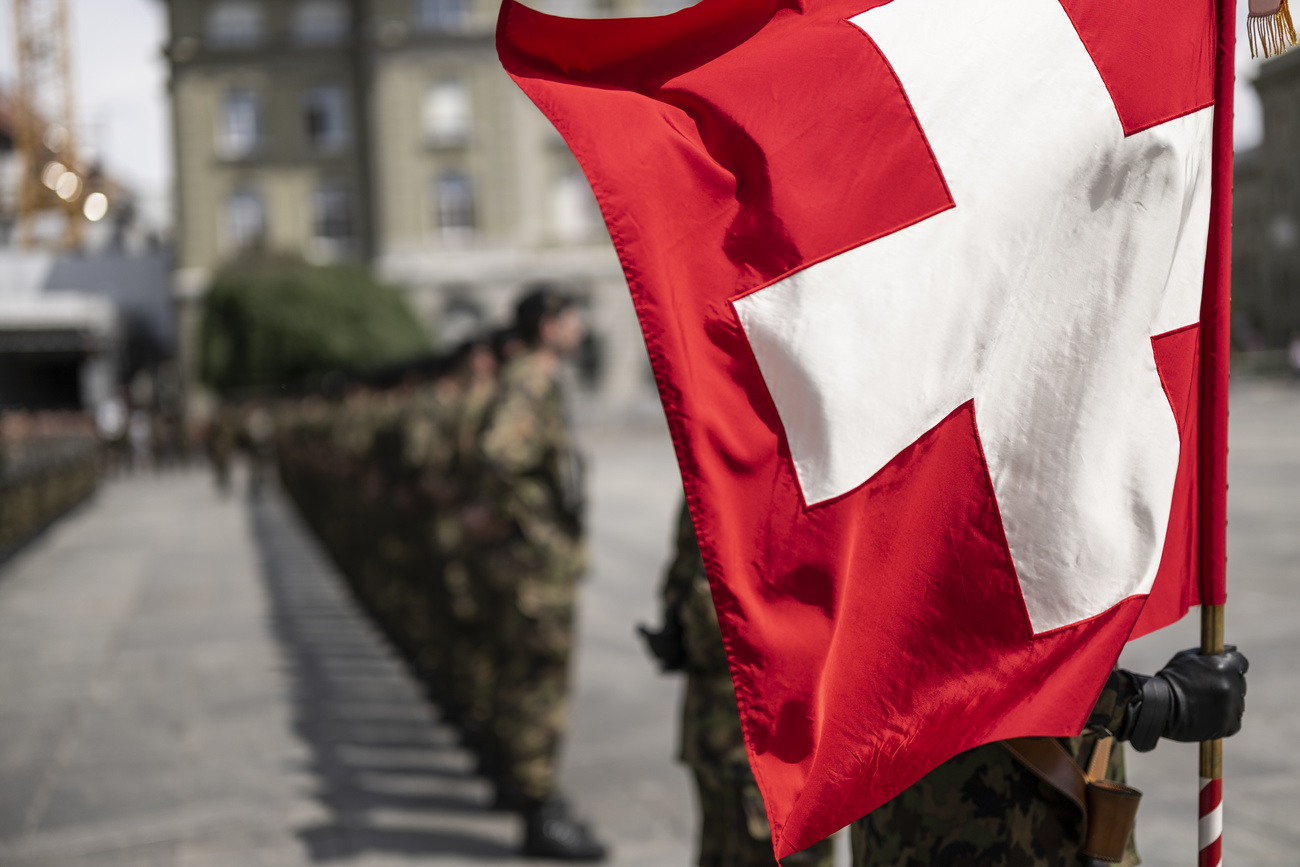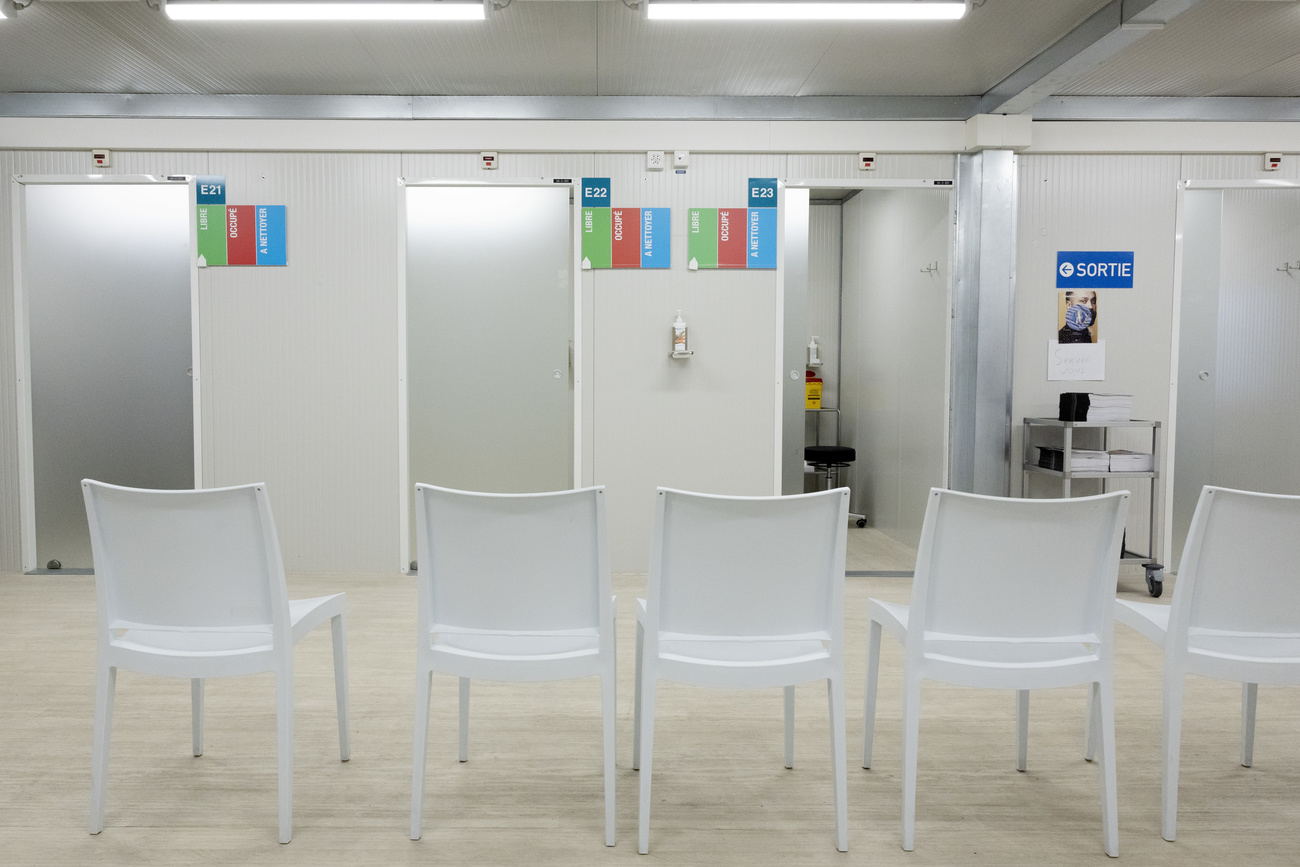

Switzerland Today
Hello from Bern,
We could all use a reason to celebrate and why not 70 years on the throne. Even the Bernese Alps are honouring the Queen in all her glory with the largest ever artwork of its kind across four mountains, including the Eiger, Mönch and Jungfrau.
The illumination will be submitted to the Guinness Book of World Records as the “largest light art composition” in the world. “Like the rocks in Switzerland, Her Majesty stands since 70 years like a rock as a beacon of light and hope for people and generations around the globe,” said Swiss illumination artist Gerry Hofstetter, who designed the installation and is described as a “lifelong Royalist” by the British embassy in Switzerland.

In the News: Selling off Russia business; Swiss respond to EU’s open questions; and parliament gives green light for more military spending.
- Swiss industrial firm Oerlikon announced that it will hand over ownership of its businesses in Russia to local management today. The Swiss firm had already ceased all international cross-border business activities with Russia on March 4 following its invasion of Ukraine. The announcement comes amid more scrutiny of ties between Swiss companies and Russian elites suspected of supporting Russian President Vladimir Putin. Russian billionaire Viktor Vekselberg is a minority shareholder in the company.
- Switzerland’s chief EU negotiator Livia Leu reiterated the country’s desire to move beyond institutional issues and focus on establishing common political ground before negotiations with Brussels can resume. In a letter, leaked to the media, she said Switzerland respects “the homogeneity of the internal market” but asked for acknowledgement that Switzerland doesn’t enjoy the same rights as EU member states: therefore “appropriate exceptions and safeguards” for Switzerland should be taken into account, she wrote.
- Both chambers of parliament have come out in favour of increasing military spending from CHF5.6 billion to CHF7 billion ($5.8 billion to $7.3 billion) by 2030. This is a reversal of the post-Cold War trend, which saw military spending fall from 1.34% of GDP in 1990 to 0.67% in 2019. Since the Russian invasion of Ukraine, and the subsequent debates about national security, the political tide has turned.

When the radical right buys a Swiss castle
There are these hidden historical gems throughout Switzerland. They are the castles with grand salons and vast gardens meant for royalty. But, according to the French language paper 24 Heures, one of these castles – at Cressier in canton Fribourg – has just been bought by the American far-right blogger and activist known as Vox Day.External link
In the US, he rose to fame during the Donald Trump presidency, spouting nationalistic theories and opposition to everything from equality to globalisation. According to the article, for the past ten years, Vox Day has been doing all of this from canton Vaud in Switzerland. Now the alt-right blogger has stepped it up by buying a massive chateau which he plans to rent out to followers. It would cost CHF6,000 for the week but members of his own ideological “community” would receive a 50% discount.
The castle isn’t any old castle though. It once belonged to Gonzague de Reynold, a conservative Swiss writer and admirer of the authoritarian regimes of the 1930s. See our 2016 story here about his movement.
So now that we know who lives there, what should be done about it? Well, 24 Heures asked local authorities who said that they are not responsible for the political views of residents. However, they added that the case presents a “challenge” but that as long as the owner doesn’t pose any problems, there is no reason to act.

The question we all want to know – when will wages catch up to inflation?
Switzerland is known to have some of the highest wages in the world. But according to the Federal Statistical Office, wages fell last year for the first time in decadesExternal link. While this ranges across sectors, salaries dropped by 0.2% on average in 2021. Taking into account inflation, the drop is even more pronounced at about 0.8%. Over the past ten years, wages had been on the upswing, increasing between 0.4 and 1% each year.
While this might not seem like big news, especially given Swiss salaries are still on the high side, the cost of living has been heading in the opposite direction. The Tages-Anzeiger looked at consumer prices over the last forty years and noted that this period of inflation is something not seen since the 1980s and 90s.
While it’s no surprise that cigarettes, gas and recreational activities have increased in price since 1982, the paper found things like the cost of education has dramatically increased. Only a few things have become less expensive: TVs cost less than a twentieth of what they did in 1982, and computers even less.
Experts though told Le Temps that we shouldn’t worry too much. The last two years haven’t exactly been normal times.

Fighting the stigma of abortion
It’s been 20 years to the day since Switzerland decided to decriminalise abortions. On June 2, 2002 some 72.2% of Swiss voted in favourExternal link of allowing women to terminate a pregnancy within the first 12 weeks. Since then, this right has been enshrined in the Swiss Criminal Code.
Despite this, women still face barriers to accessing abortion support including stigma, quality of care, and awareness, says Lénore Porchet, a parliamentarian who also heads the organisation Santé Sexuale Suisse. She has put forward a motion to remove mention of abortion from the criminal code. The reason? Although such a legal change wouldn’t impact care, it perpetuates the idea that it is a forbidden or illegal act, writes Le Temps today. “The idea is to frame it in a separate law, to show that it is not a criminal issue, but a health issue,” says Porchet.
More

In compliance with the JTI standards
More: SWI swissinfo.ch certified by the Journalism Trust Initiative


































